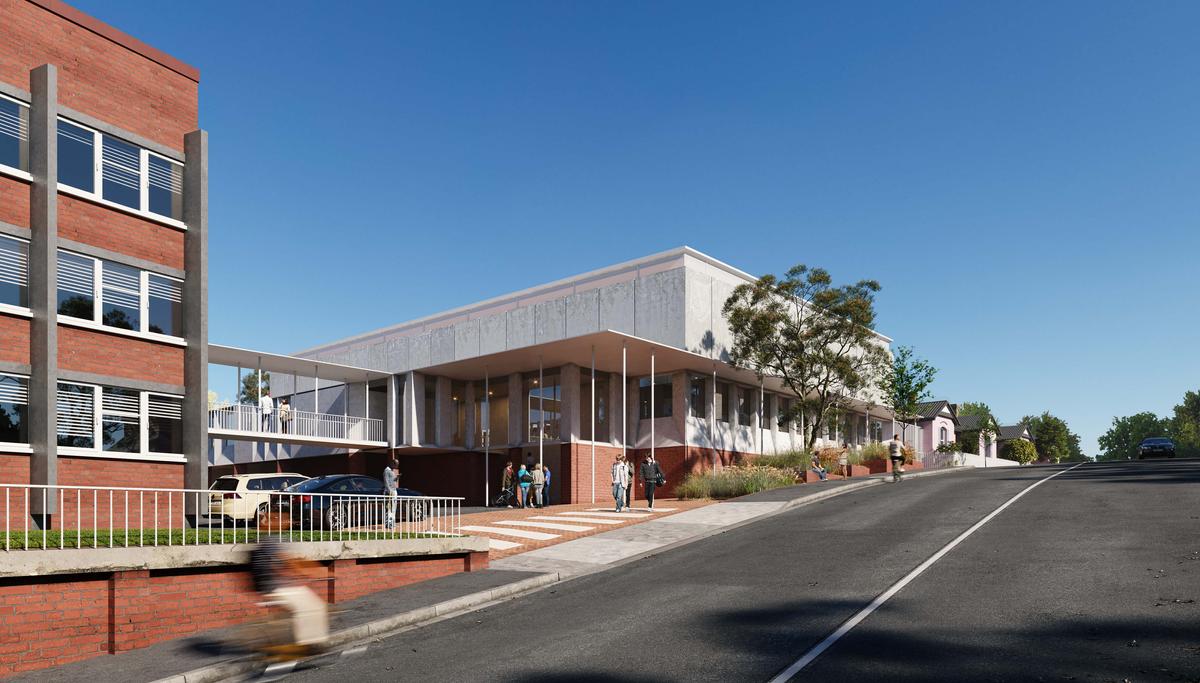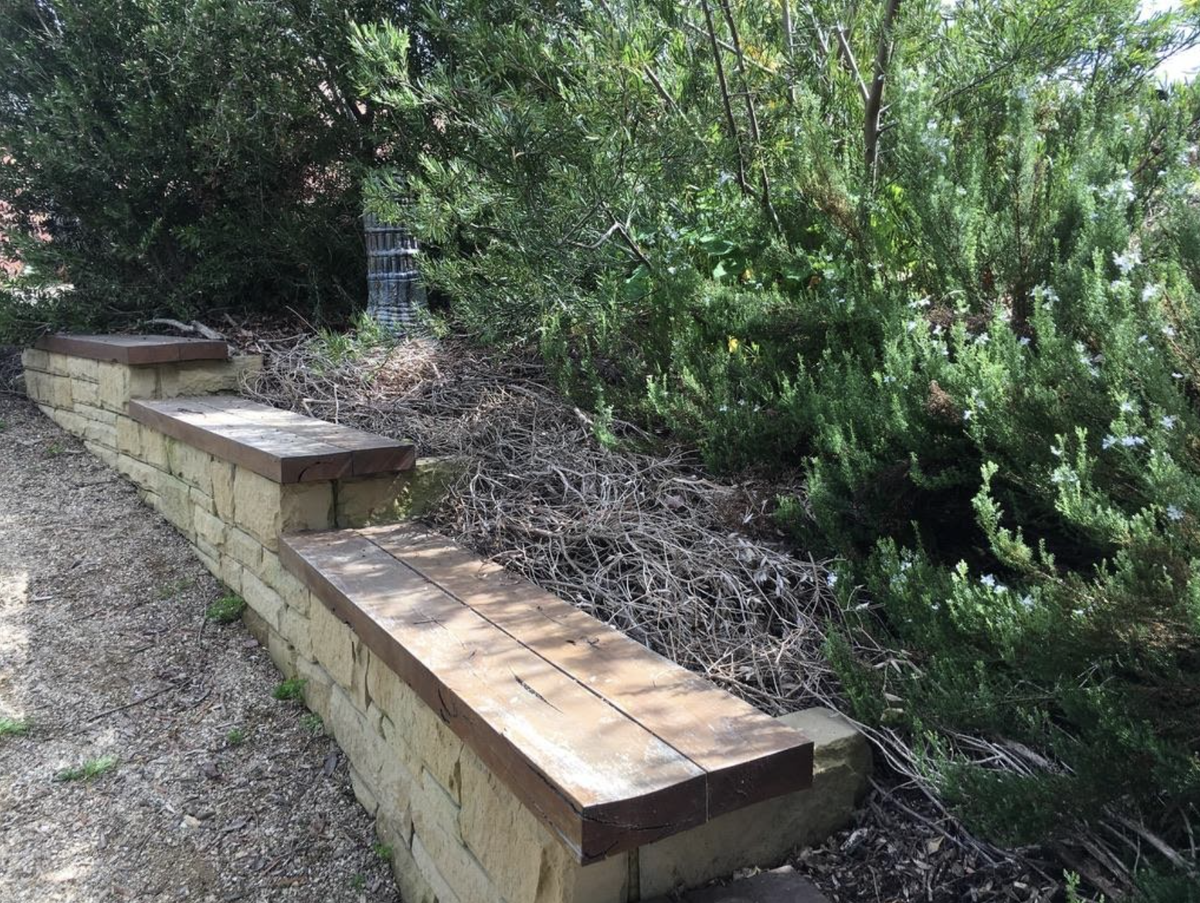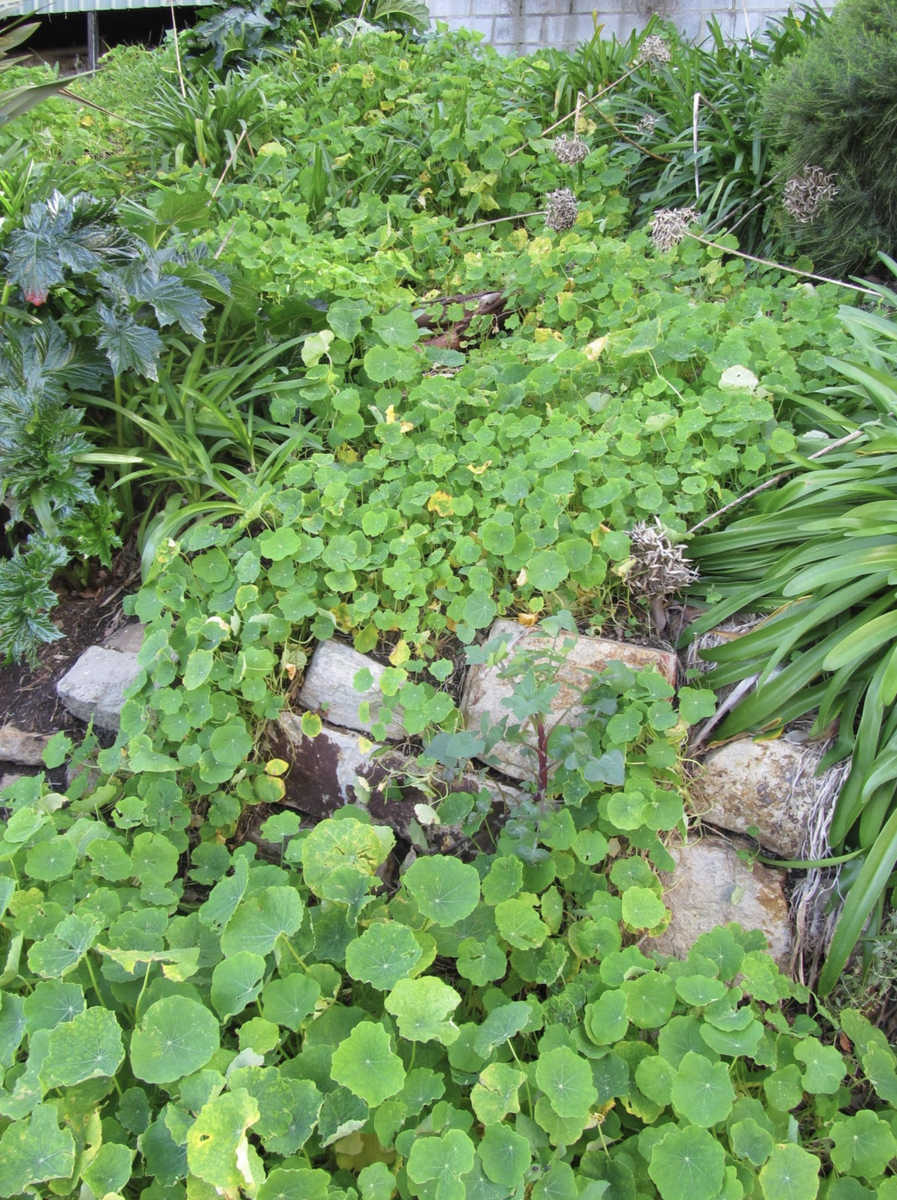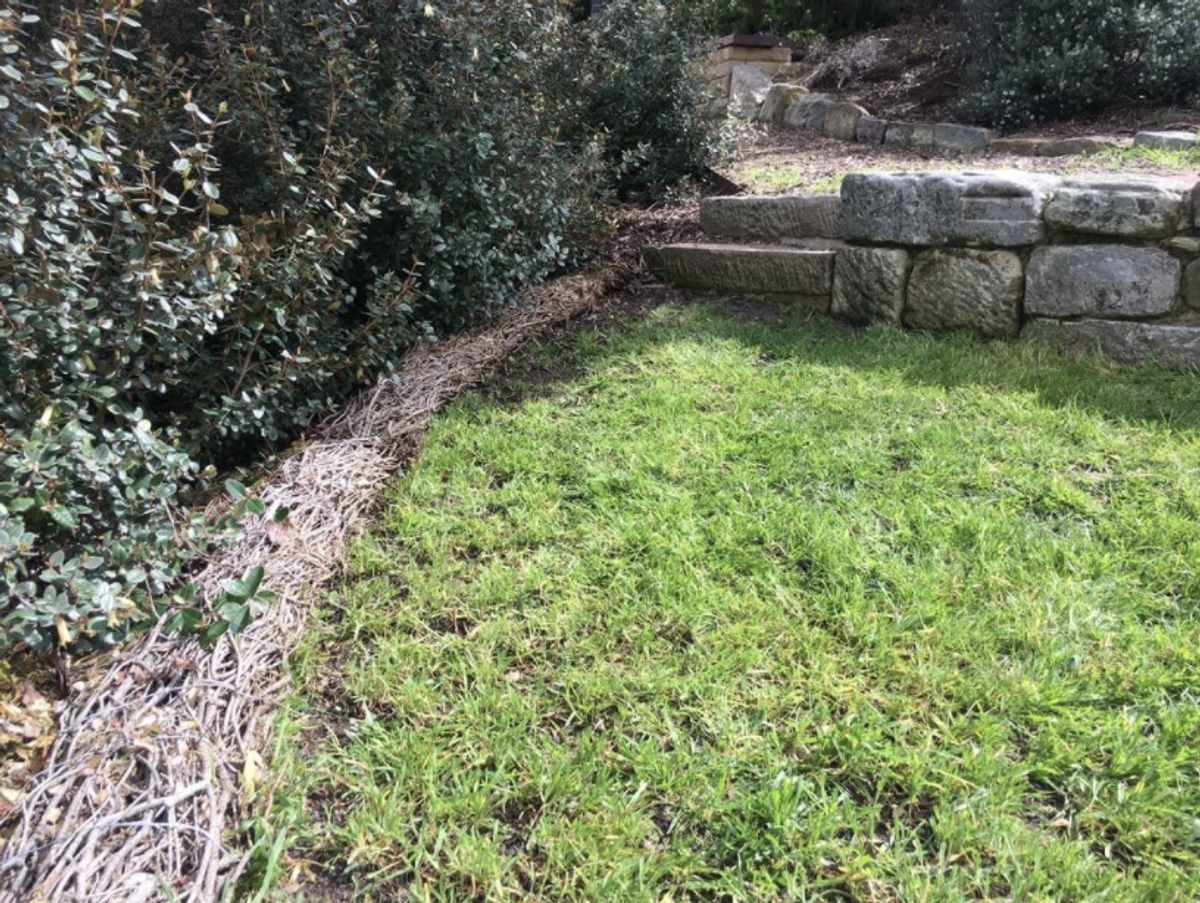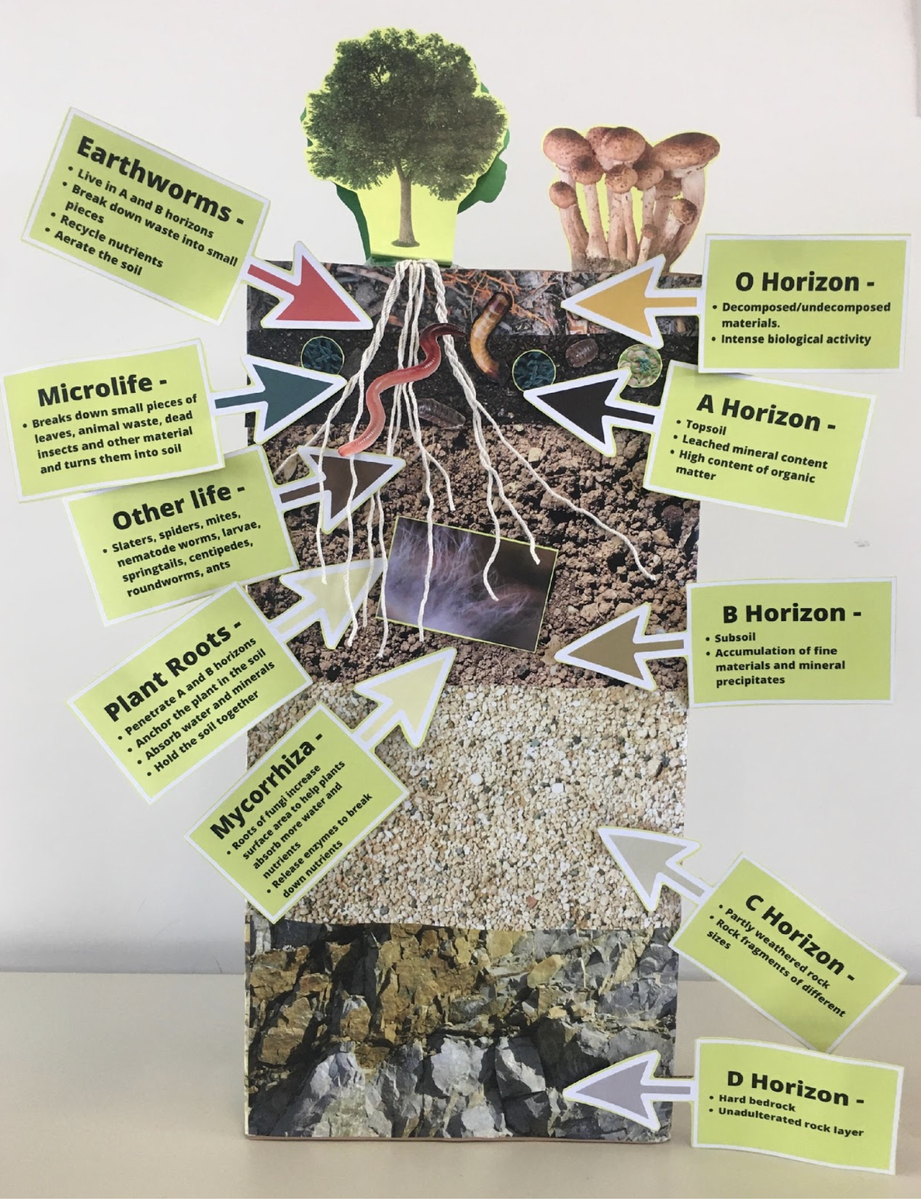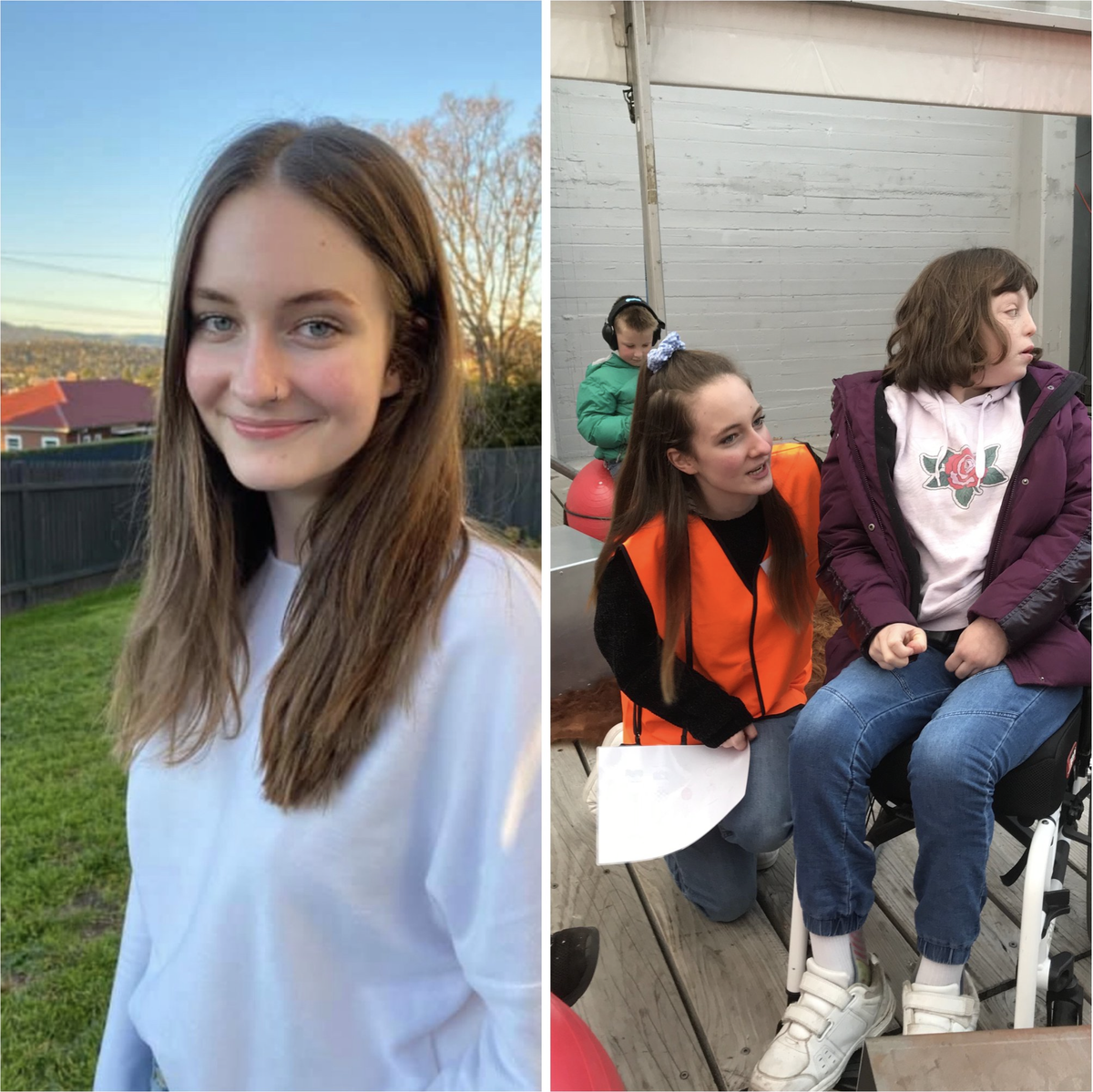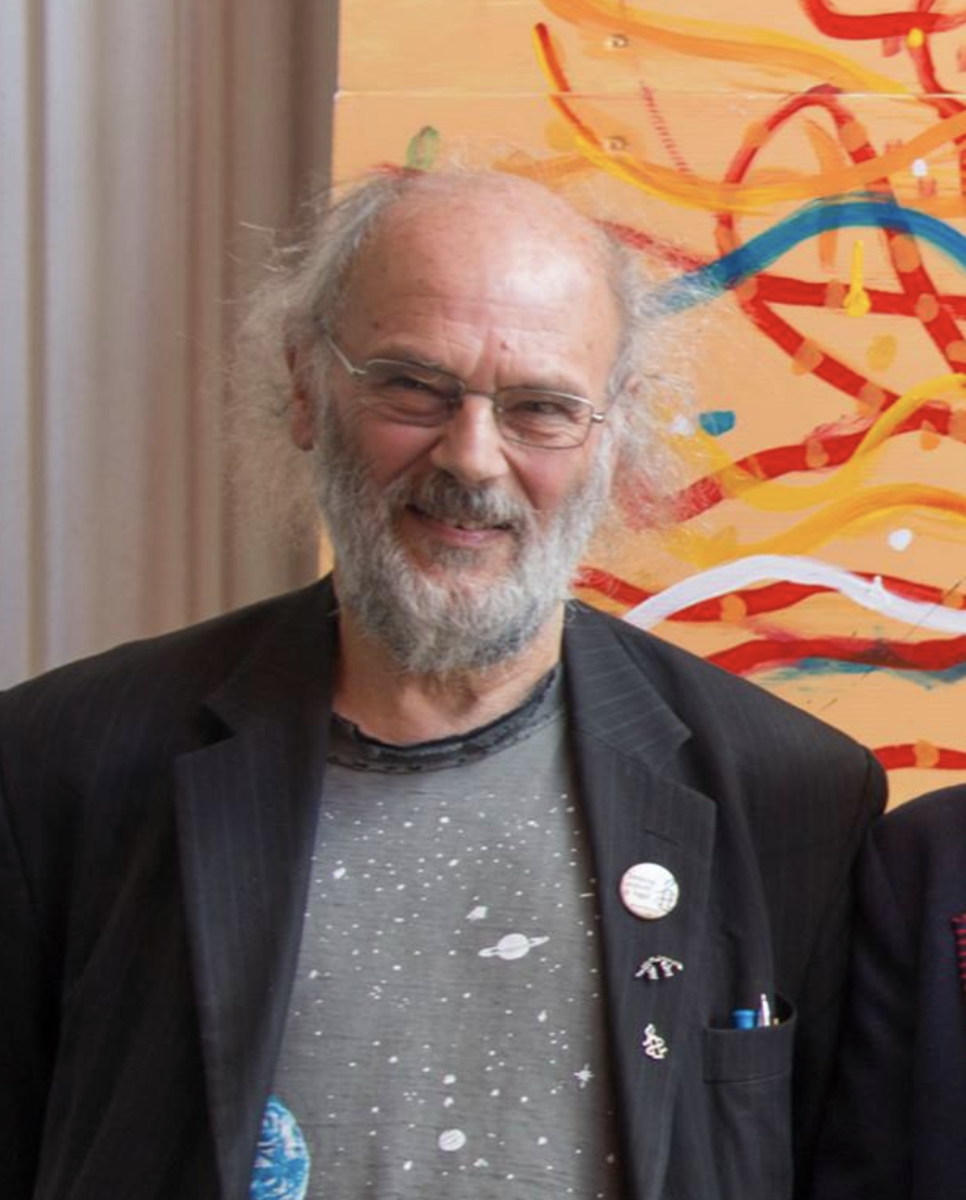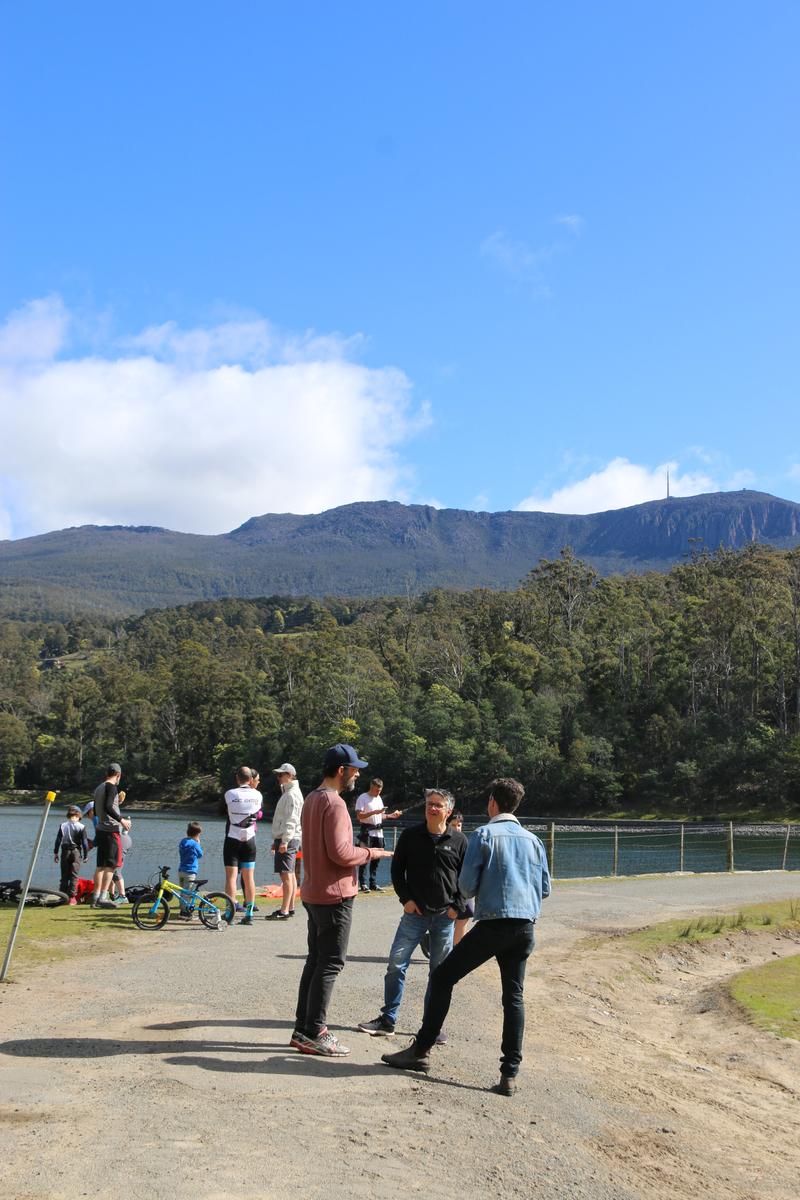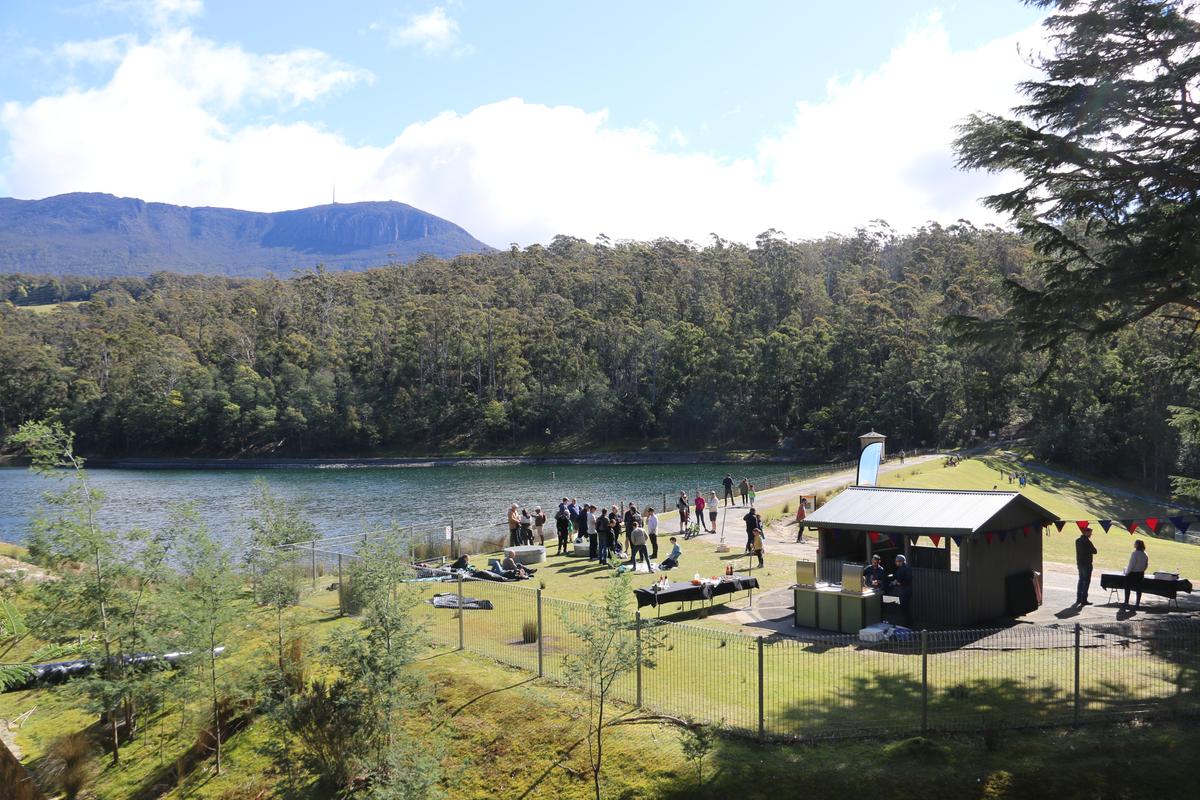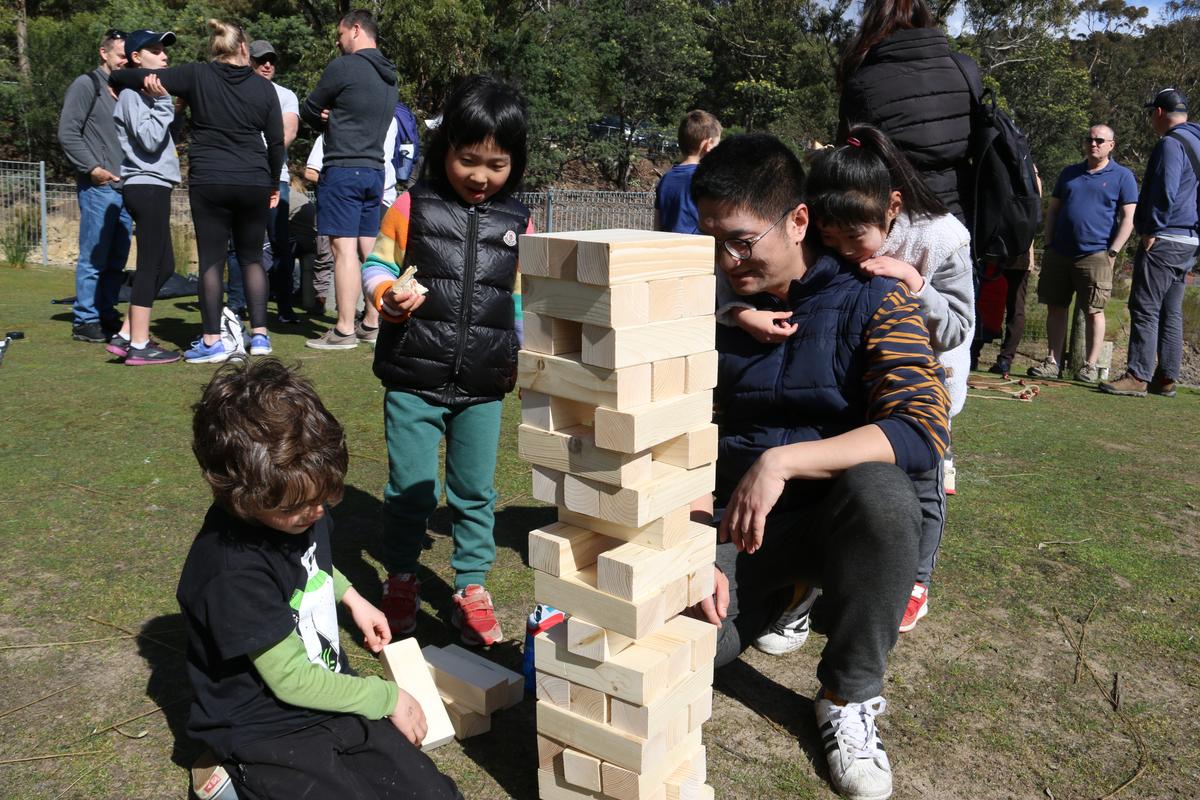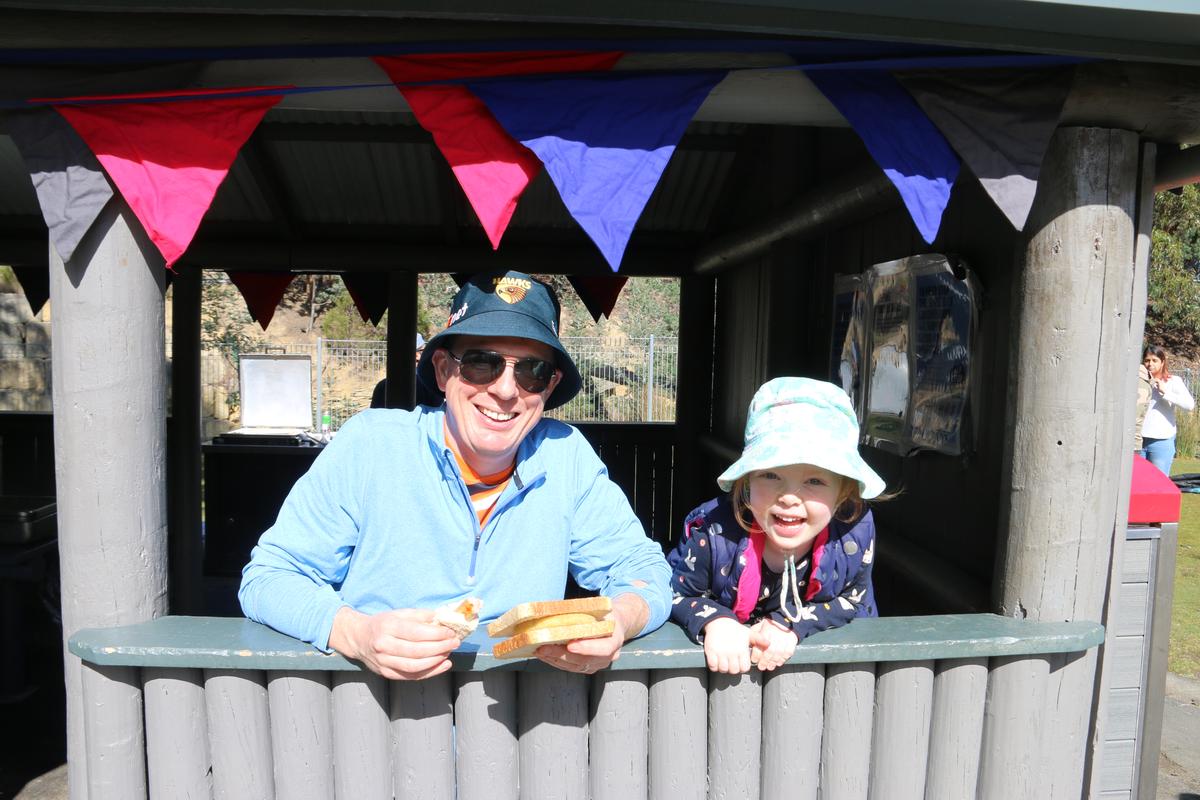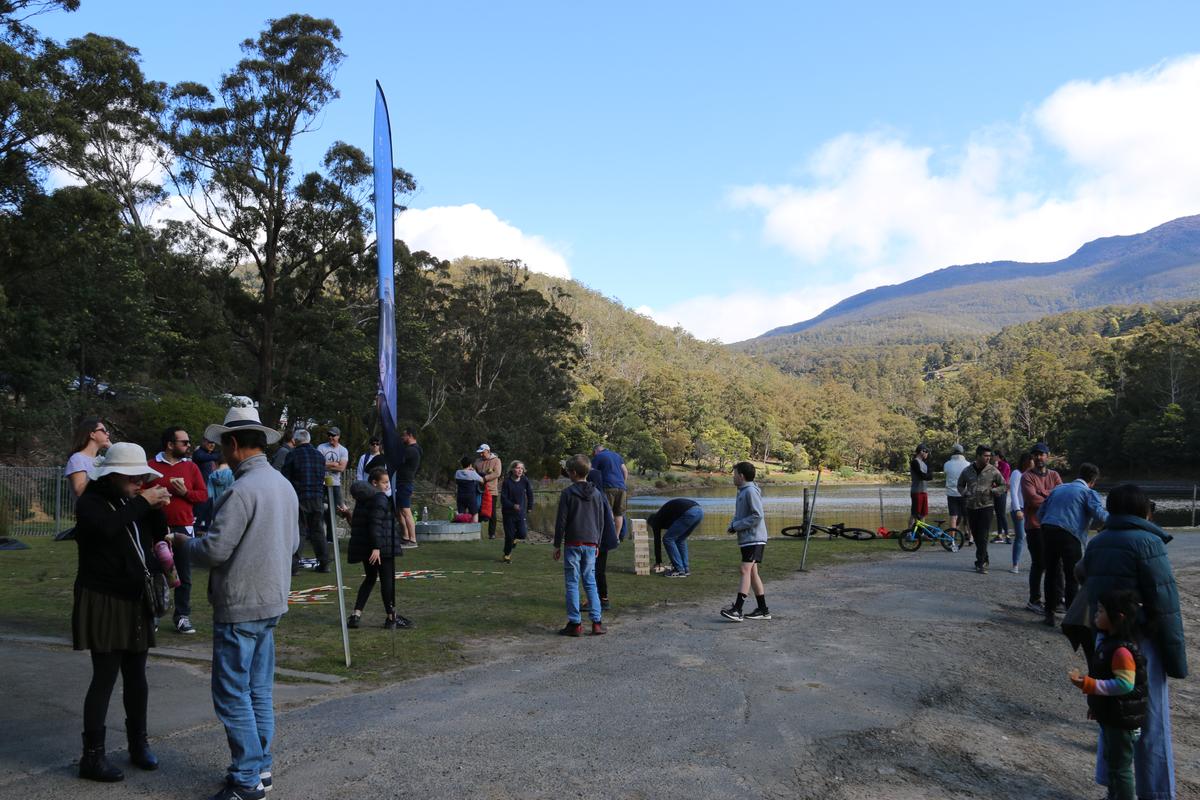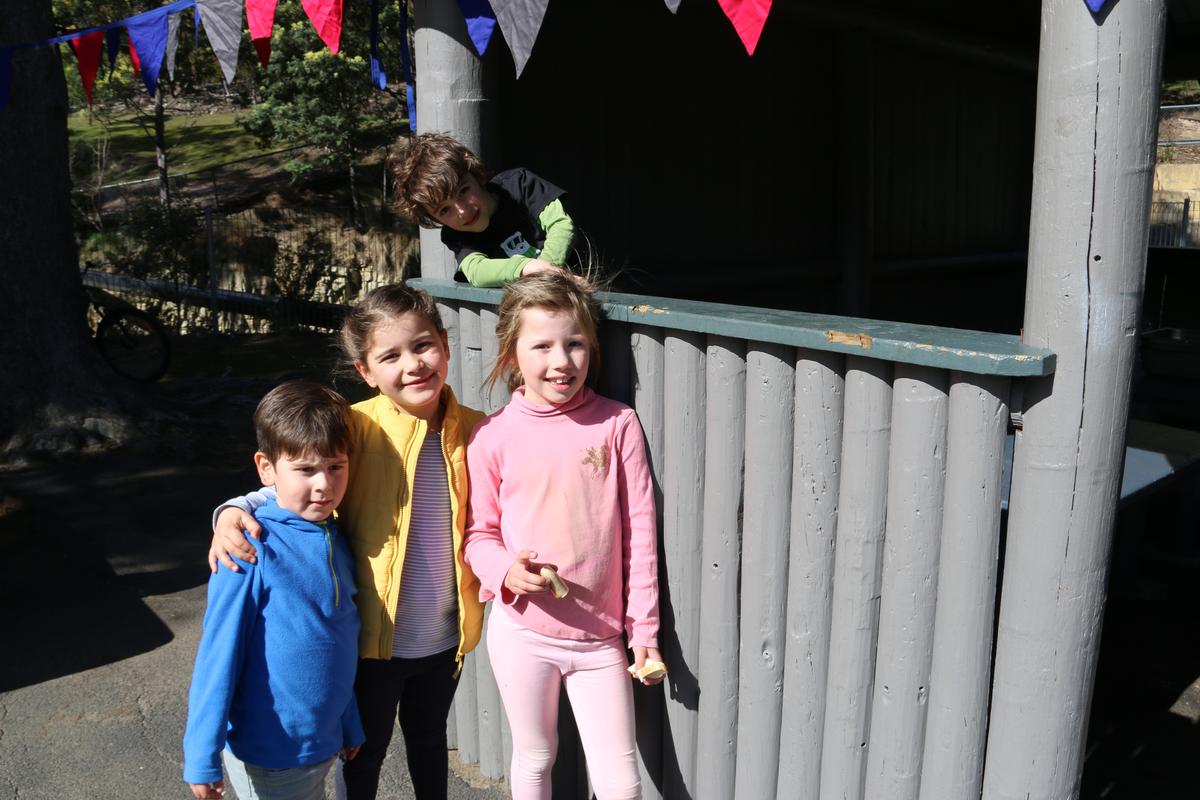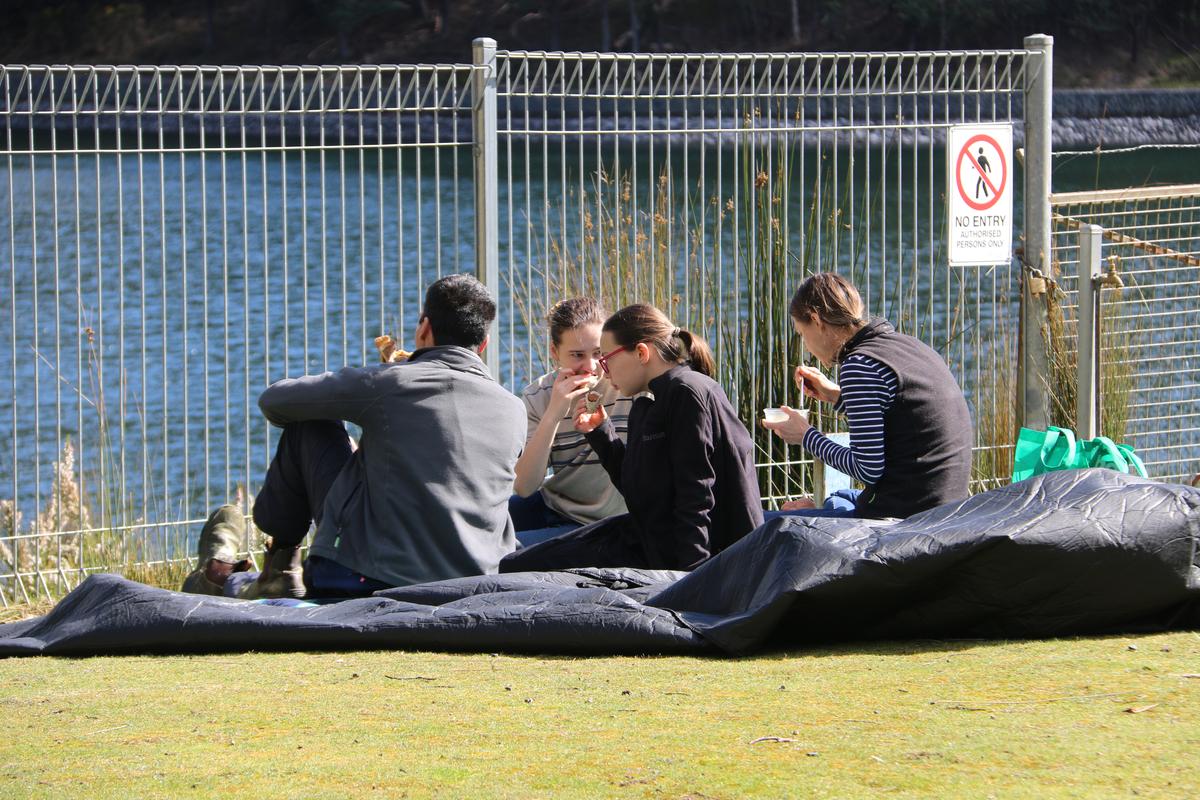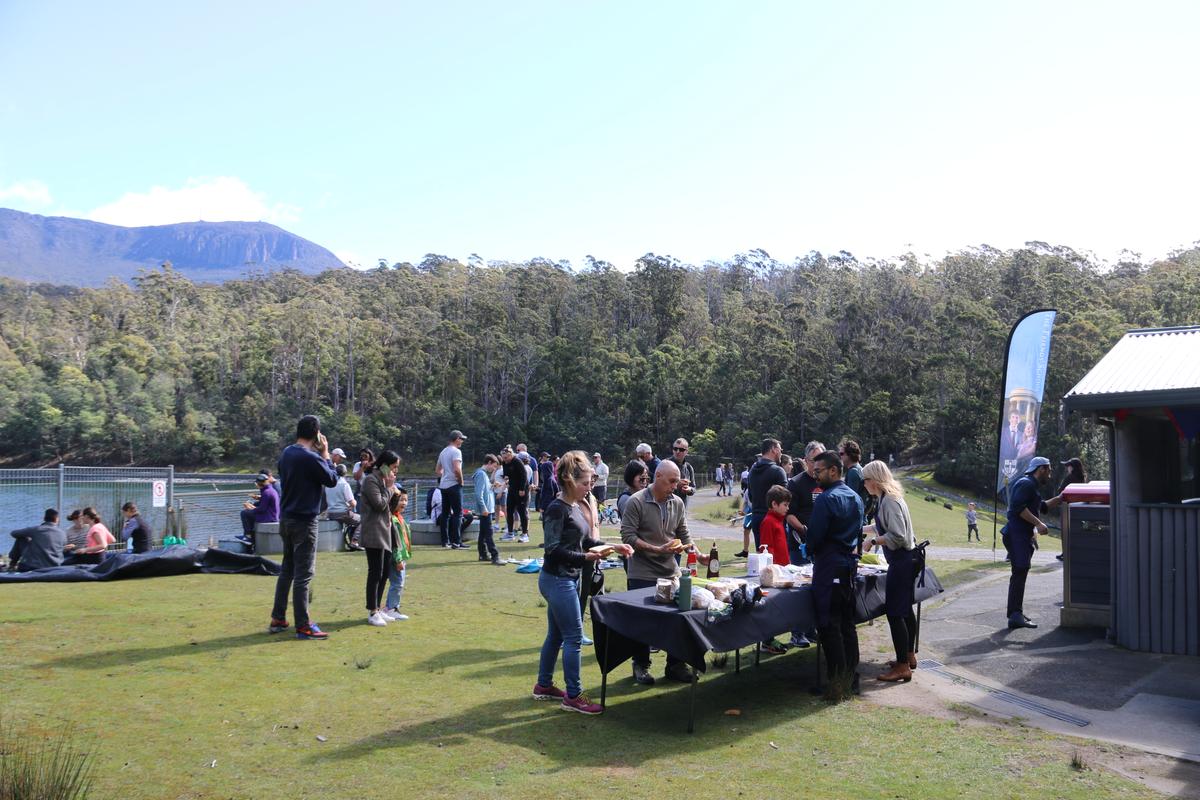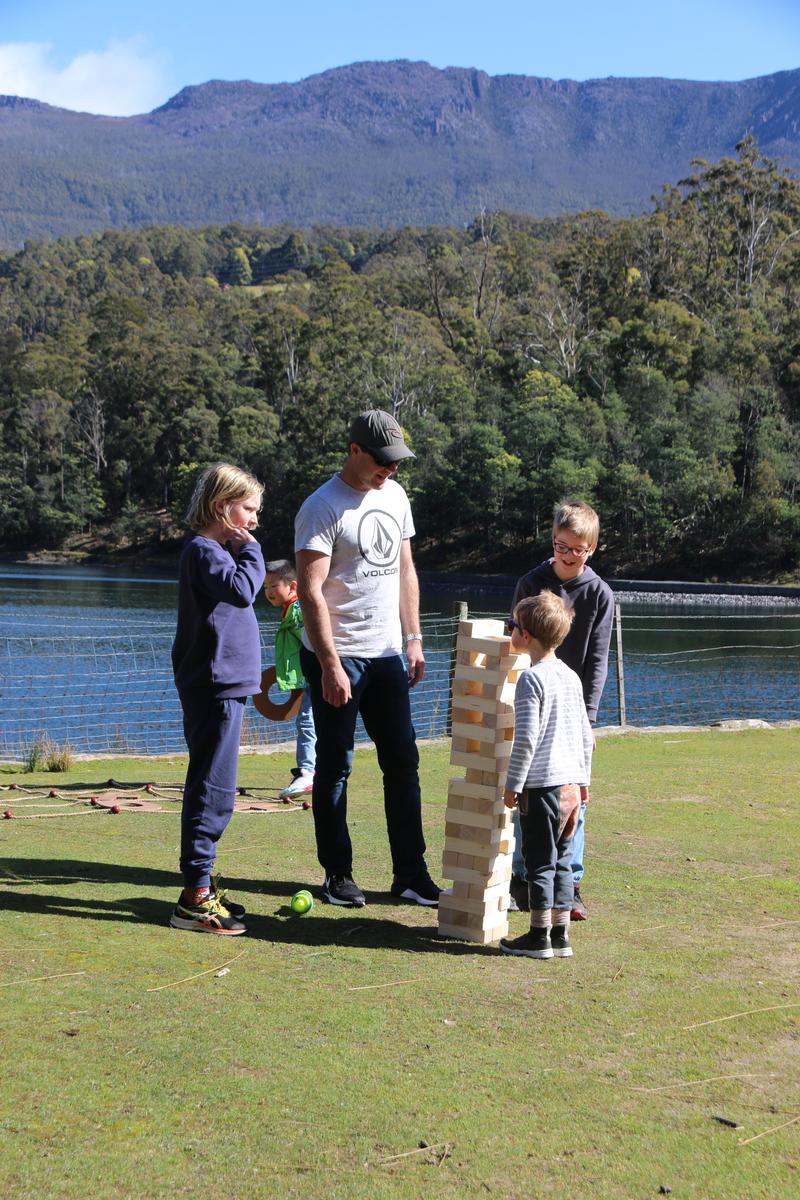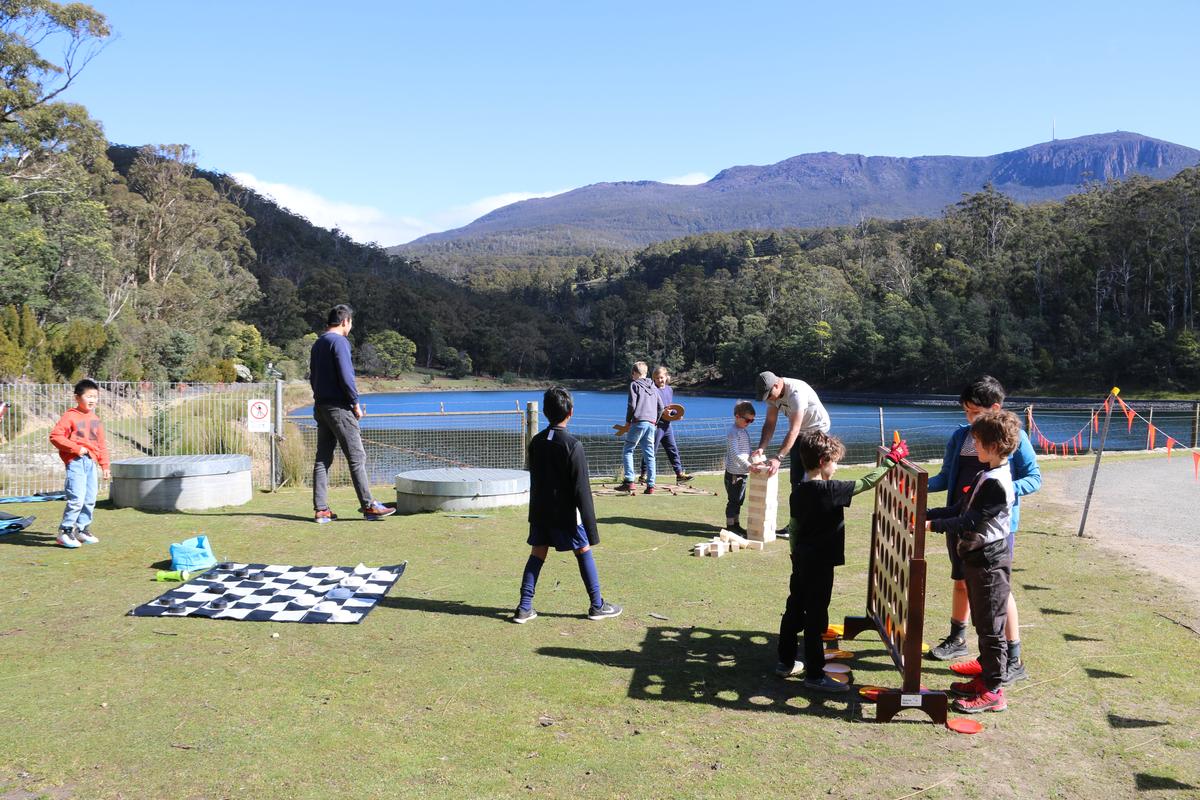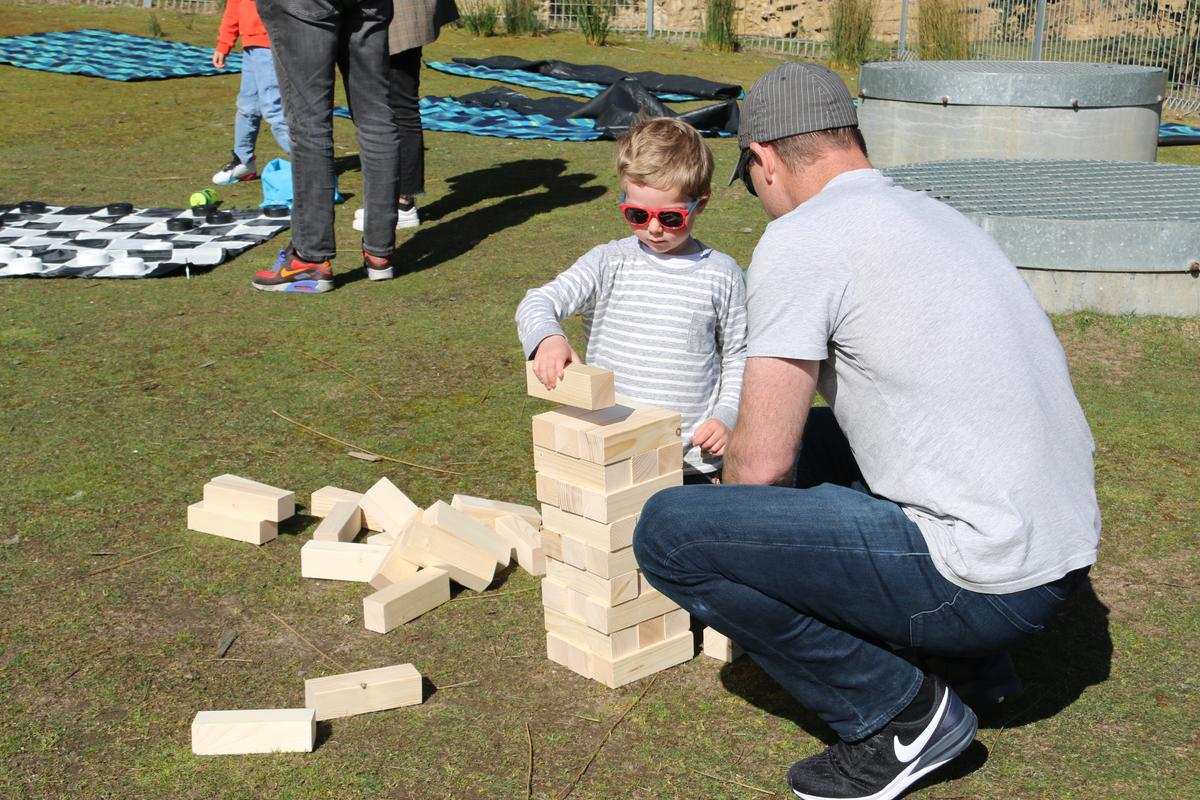Our Community
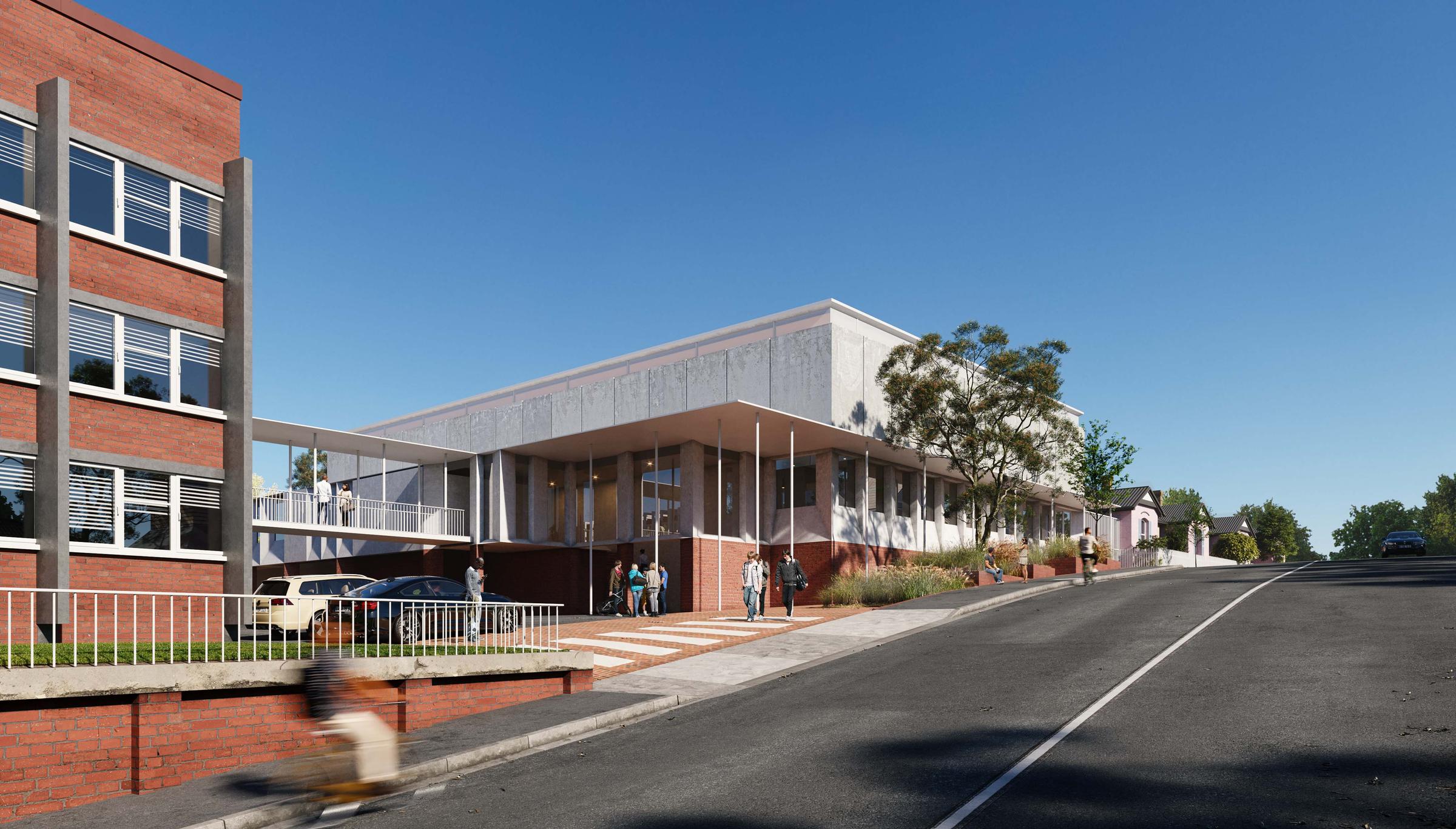
Campus Redevelopment Update
Recently the School submitted and received Development Application approval from the Hobart City Council for the Campus Redevelopment Stage One. As previously communicated, the School is determined to progress the High School Campus Redevelopment and be ‘build-ready’ - whenever that is prudent and feasible.
This significant project will help transform the School’s High School Campus and is a key component of the School’s Strategic Priority regarding its physical and organisational structures:
“We will ensure that the physical and organisational structures of the School are developed to transform and promote learning and wellbeing.”
This exciting redevelopment project will significantly enhance flexible learning delivery and provide staff and students with better campus connectivity, positive health and wellbeing outcomes and an optimal environment to activate learning. Project works include building a new Sports Centre on the existing ‘top’ Carr Street tennis courts to replace the existing WN Oats gym. The existing WN Oats gym will be transformed into the new WN Oats Learning Centre for Years 7-10, addressing capacity and access issues and fostering best practice teaching and learning for our students.
We look forward to sharing more project details and providing personalised information tours soon. Current details on the project can be viewed on the School’s website. If you have any queries or would like to know more, please contact Bill Avery, Director of Community Engagement.
Welcome to our New Head Girl & Head Boy for 2021
We are pleased to introduce the Head Girl & Head Boy for 2021, Aaliyah Walker and Riley Curtain.
The Head Student positions at The Friends’ School are roles that come with a lot of responsibility and we believe these two brilliant students will do a fantastic job in representing the student body in 2021.
International Year of Plant Health – Soil Health
2020 is the International Year of Plant Health (IYPH). During 2020, Wilbur Wilkinson, one of the Friends’ Horticulturists, and the High School Library have been collaborating on a series of displays highlighting how Wilbur cares for our school plant and soil life.
The focus for Term 3 has been soil health.
Healthy Soil = Healthy Plants = Healthy People
Healthy Soil:
- Is crucial to plant health
- Is an ecosystem
- Is home to many diverse microbes
- Is home to larger organisms including worms, beetles and ants
- Contains organic matter
- Contains air
- Has good structure (like a crumbly cake)
- Has good drainage
- Has a healthy Ph range
- Stores and filters water
- Stores carbon
- Contains nutrients
In Wilbur’s own words:
“Practically speaking, my role at the School means that to the best extent possible, I am caring about and for all the different life forms that I come across in my daily work. The human ones (us), come and go from the School each day. Many other creatures come and go each day, or visit occasionally, or when the season is right for them. But for countless billions, this is their permanent and only home. If we look, we can be very aware of the biggest and brightest (trees and shrubs and beautiful green lawn areas, or colourful flowers, for example). We might be aware of the brave little birds, or the noisy, bossy, big ones. But out of sight beneath our feet, is home to the most complex and intricate wonderland imaginable. And what goes on here, quite literally, feeds all the rest. All of us! The soil beneath our feet is the very future that we are handing not just to our children, but to all life.
The first thing about soil is to give it value. If something is seen as having great value, then we will do our best to protect it from harm. Not many people realise that it takes more than 500 years for 2cm of soil to be created through natural processes. If healthy soil can be perceived as having great value, then it follows that it will be treated with care. Soil is often thought of as a singular ‘thing’ but it is actually an amazingly complex matrix of interacting parts. The soil, like us, is alive. It can be looked after and helped by being protected from too much heat or cold; from being too wet or being squashed or smashed around; or from things that are bad or poisonous for it. It needs feeding and water and responds to nurturing.
There is a thing called regenerative horticulture. That’s what I try to practise at the School. It is most concerned with caretaking and building the soil as a habitat for beneficial organisms, bacteria and mycorrhizal fungi,to build organic matter and store carbon. These organisms will build the organic matter as 'stable' carbon in the soil and make the nutrients that are already in the soil available to plants. They will also support higher-order life forms such as earthworms. A cascade of interactions between the soil and the plants results in the plants being resistant to attack by pests and diseases. It results in food (if that is what is growing) that is highly nutritious and has other health-giving qualities.
When backyard gardeners and farmers alike work with the land in a way that stores carbon in the soil, individually we will make a significant difference to reducing carbon dioxide in the atmosphere.”
What do I do?
- I try to keep plastics out of our soils.
- I try to reduce all herbicide and pesticide use to the absolute minimum.
- During holidays, the School gets very busy with all sorts of building and plumbing and electrical and painting and other work. It is very easy, in the busy rush of it all, for people to forget that the soil is a living thing on which we all rely (for example, an innocent thing like window cleaning is likely to be using products containing detergents and fungicides. Great for sparkly clean windows. Maybe not so good for the plants and soil below.) I try to help all the workers avoid unwittingly contaminating the soil with plastic sawdusts and treated pine sawdust and concrete slurry spillage and all sorts of other harmful things. I try to help avoid good topsoil ending up at the bottom of a plumbing trench with the clay subsoil on top.
The photos below also show other ways in which Wilbur looks after our precious soil.
What grows on-site stays on site:
Micro-nutrients get taken up by deep-rooted plants. If we take these plants off-site, we take away valuable micronutrients such as boron, copper, iron, manganese, molybdenum, zinc, chlorine and nickel that are not often included in common fertilisers. If we let plants break down on-site, these precious nutrients are recycled back into the soil. The above photo is an example of using tree prunings to achieve multiple ends. The branches along this garden edge protect the mulch underneath from being dislodged by blackbirds and people alike. Young plants can be planted in amongst the branches where they will be supported and protected.
The High School Library has dedicated a large display area to the International Year of Plant Health with a different focus each term. So far this year we have covered biosecurity, autumn leaf collection and soil health. Term 4 will focus on integrated pest management, bees and pollination. Students can see how Wilbur is supporting the aims of IYPH and hopefully become more aware of the impacts, both positive and negative, that we can have on our environment.
Lottie Frohmader - Young Leader of Tasmania
The Young Leaders of Tasmania Program is a program offered by the Southern Support School, a school for students with disabilities between the ages of 5 and 18. Each fortnight, Friends’ students visit the school and support students in a variety of subjects, such as cooking, work skills, and physical education. In addition to assisting students in a school environment, the program has enabled Friends’ students to connect with their buddies at the Southern Support School in a variety of different formats. Earlier this year, Friends’ students attended school holiday workshops that promoted engaging activities such as cooking, painting, and dancing. Students also participated in the Southern Support School social, an initiative jointly organised by students at Friends’ and the Southern Support School. Personally, the social was one of the highlights of my time at Clemes, as it was an amazing event that everyone - irrespective of their ability - enjoyed.
The YLOT program has been an invaluable experience that not only enabled me to develop communication and leadership skills but also fostered friendships that I will never forget. The program has shown us the importance of accessibility and equal opportunities for young people with disability; it has enabled us to form lasting friendships with the students at the Southern Support School - friendships that are grounded in mutual respect; and it has encouraged us all to become better leaders, who amplify the voices of people with disability in order to make our community one of inclusion, acceptance, and respect.
Thank you, Lottie, for sharing your story with us.
Peter Jones Peace Prize 2020
The Peter Jones Peace Prize is named after long-serving Friends’ teacher (and Quaker) Peter Jones, who has spent a good deal of his life campaigning for peace and justice in the world. This High School-based prize was started in 2017 in honour of Peter Jones and to give students the opportunity to reflect on matters of peace and justice.
This year’s Peter Jones Peace Prize invited students to respond to the Martin Luther King quotation; “If I cannot do great things, I can do small things in a great way,” A common theme in the entries was the importance of acting with integrity in our everyday actions.
Guest Judge, Sophie Rigney (2002 Alumnus) announced this year’s winner; Year 10 student Annabel Woolward, for a compellingly brave piece of Slam Poetry entitled ‘One Day at a Time’ which used the spoken word in a thoughtful, powerful way to link individual and community levels of justice. Year 8 student Tom Petty received the Runner Up prize for an impassioned speech engaging in a critique of capitalism. We congratulate all student entrants for the ways in which their entries demonstrated their inspiration about questions of social justice and peace.
You can read the winning speech here.
Father's Day
We were very fortunate to again be able to host a Father's Day event for the dads in our community.
On Saturday 5 September Friends' Fathers and their families gathered at The Waterworks reserve for a walk, BBQ and games hosted by the School. The weather was glorious and there was plenty of food for post-walk snacks.
Thank you to everyone in our community who came along and made the day special.
Cleaning Up
Billie (Year 8), Hannah (Year 8), Emma (Year 7), Holly (Year 9) and Ruby (Year 8) have been dedicating their long tutor time to picking up rubbish around the school grounds. Earlier in the year, the girls saw the amount of rubbish that was accumulating around the grounds after recess and lunch and decided to do something about it. They have been quietly undertaking this task for most of this year and have only recently been discovered by grounds staff, who were very impressed with the students' efforts.
To make their task easier, George presented them with some collection sticks, which they can now use to continue their good work.
This is just one of many examples of Friends' student taking action on something that they feel passionate about (in this case, Earthcare, one of the core Quaker principles). Thank you, girls, for all your hard work.
Leaver's Dinner
On Friday 25 September 2020, the 2020 Leaver's Dinner was held in the Farrall Centre. The rainy weather didn't dampen spirits with the evening enjoyed by students and staff who have supported the Year 12's in 2020. A photo gallery by The Mercury can be viewed here. Readers can also listen to a radio interview on HIT FM with Head Girl, Charlotte Rogers discussing the fun night. Thanks to all the staff, students and volunteers, including parent Kate Sice for the beautifully arranged greenery and flowers, who helped put on a fantastic event for the leavers.

